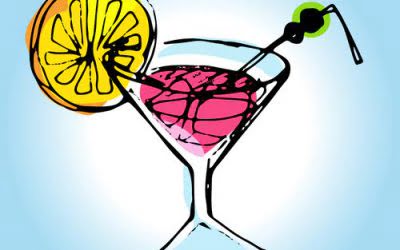Food and Drug Administration (FDA) issued a warning advising women to avoid NSAID use after the 20th week of pregnancy. All of the information on this page has been reviewed and verified by a certified addiction professional. Ibuprofen addiction can be motivated by physical causes as well as emotional reasons. How to Take Ibuprofen Safely That’s why we take a holistic approach to treatment, addressing not only the physical aspects of addiction but also the emotional, mental, and spiritual components. Our programs incorporate individual and group therapy, family counseling, 12-step facilitation, and experiential therapies to help clients develop the skills …
Food and Drug Administration (FDA) issued a warning advising women to avoid NSAID use after the 20th week of pregnancy. All of the information on this page has been reviewed and verified by a certified addiction professional. Ibuprofen addiction can be motivated by physical causes as well as emotional reasons.

How to Take Ibuprofen Safely
That’s why we take a holistic approach to treatment, addressing not only the physical aspects of addiction but also the emotional, mental, and spiritual components. Our programs incorporate individual and group therapy, family counseling, 12-step facilitation, and experiential therapies to help clients develop the skills and tools they need to maintain long-term sobriety. If you or someone you know is grappling with ibuprofen addiction, take heart in knowing that many have walked this path before and found their way to recovery. The journey may be challenging, but with the right support and resources, it’s possible to break free from the cycle of dependency and rediscover a life unencumbered by addiction. Appropriate use involves taking ibuprofen as directed for short-term pain relief, typically not exceeding the recommended dosage or duration. Addiction, on the other hand, is characterized by a compulsive need to take the medication, often https://www.endmyobesity.com/drug-rehab-addiction-treatment-what-is-drug/ in higher doses or more frequently than prescribed, despite negative consequences.
Safe Pain Management Practices
- Our expertise can help you understand medication risks and find healthier alternatives.
- Physical dependence on ibuprofen is not commonly reported in the same way as with narcotics or alcohol.
- A behavioral health treatment program for anxiety can get to the root of the problem and decrease compulsions before your health takes an irreparable hit.
Recognizing and addressing signs of ibuprofen misuse at the earliest stage can avert the pathway leading to dependence. Addiction Treatment Services underscores the value of being vigilant about the early indicators of substance misuse within oneself or can you get addicted to ibuprofen others. Educational efforts in this arena teach how to identify behavioral changes, physical symptoms, and patterns of use that may signal misuse. In the realm of preventing ibuprofen misuse and addiction, education and awareness stand as foundational pillars. Addiction Treatment Services champions these initiatives through a suite of programs designed to enlighten individuals about the potential risks and realities of OTC medication misuse.
Treatment Strategies:
Our team of compassionate, experienced addiction experts is available to speak with you about your concerns — 24 hours a day, 7 days a week. For some people, Ibuprofen may be a way of “numbing” not only physical pain, but emotional pain as well. Nonprescription Ibuprofen is available for purchase over the counter in several forms, including concentrated liquid drops, tablets, chewable tables, and in liquid suspension. The maximum over the counter use is approximately 1200 mg per day, and under medical prescription, the upper limit for consumption may be as high as 3200 mg per day. John C. Umhau, MD, MPH, CPE is board-certified in addiction medicine and preventative medicine.
Tailored treatment advice for you
It may also increase the risk of heart attack and stroke, particularly in individuals with pre-existing cardiovascular conditions. Kidney damage is another potential consequence, as the kidneys work overtime to process and eliminate the drug from the body. Addressing ibuprofen addiction is crucial, not only for the individual’s well-being but also for raising awareness about the potential dangers lurking in our medicine cabinets. As we delve deeper into this topic, we’ll explore the intricacies of ibuprofen addiction, its signs and symptoms, and the steps towards recovery. It’s a journey that requires understanding, compassion, and a willingness to confront the uncomfortable truth about our reliance on over-the-counter medications. Understanding ibuprofen addiction starts with knowing the potential dangers of misusing it.

Managing Pain Without Addiction

Although ibuprofen is a commonly used and effective over-the-counter pain reliever, it’s important to be aware of the possible consequences of improper use. Using it responsibly means sticking to the recommended doses and being aware of any signs that may indicate misuse. While ibuprofen is not considered an addictive drug like narcotics or opioids, it is still essential to understand how to use it safely. If you have any doubts about its usage or if you’re considering other options for managing chronic pain, always consult with healthcare professionals. Moreover, topical pain relievers provide a targeted approach, delivering relief directly to the area in distress without the systemic side effects or dependency risks inherent in oral medications.
New Jersey Intervention is here to help guide your or your loved one to the right place for addiction treatment and mental health treatment. Misuse typically occurs when someone exceeds the recommended dosage to manage pain or uses ibuprofen frequently for chronic conditions without proper medical supervision. An addicted individual often prioritizes the substance over other aspects of their life, such as work, relationships, and health. Addiction affects the brain’s reward system, leading to cravings and not being able to stop using the substance despite the consequences it’s contributing to and causing. It goes beyond physical dependence and includes compulsive use of a substance despite knowing the harmful consequences.
Long-term Health Risks Associated with Continuous Ibuprofen Use
- Nonprescription Ibuprofen is available for purchase over the counter in several forms, including concentrated liquid drops, tablets, chewable tables, and in liquid suspension.
- This realization can be prompted by physical symptoms, concerns raised by loved ones, or a personal awareness that dependency has taken hold.
- A substance abuse counselor will use these criteria to determine if a patient has an ibuprofen dependency that may require professional treatment.
Ibuprofen users who struggle with dependency may find it helpful to speak with a therapist. Therapists also help people manage symptoms of depression and anxiety, which can be common in people living with chronic pain. Ibuprofen, a widely used over-the-counter pain reliever and anti-inflammatory drug, is a staple in many medicine cabinets. Ibuprofen belongs to a class of medications known as nonsteroidal anti-inflammatory drugs (NSAIDs), and Alcoholics Anonymous pharmaceutical companies often sell it under brand names such as Advil, Motrin, and Nurofen. While experts generally consider ibuprofen safe when used as directed, growing concerns exist about the potential for abuse and addiction.
Physical Dependence on Ibuprofen
While ibuprofen can cause side effects if overused (such as gastrointestinal issues, kidney problems, or liver damage), it does not lead to physical dependence or addiction. Unlike addictive substances, ibuprofen does not significantly affect the brain’s reward system or trigger compulsive use. In this article, we’ll dive into why ibuprofen isn’t considered addictive, explaining its effects on the body and how it differs from substances that cause addiction. Additionally, we’ll look at the science behind addiction to other substances, including medications, and why they affect the brain’s reward system in a way that ibuprofen does not. The good news is that these anxiety disorders are conditions that can be successfully diagnosed and treated. If you’re unsure whether anxiety or addiction (or both) may be driving your ibuprofen habit, consult a mental health professional to help figure out what’s going on.



